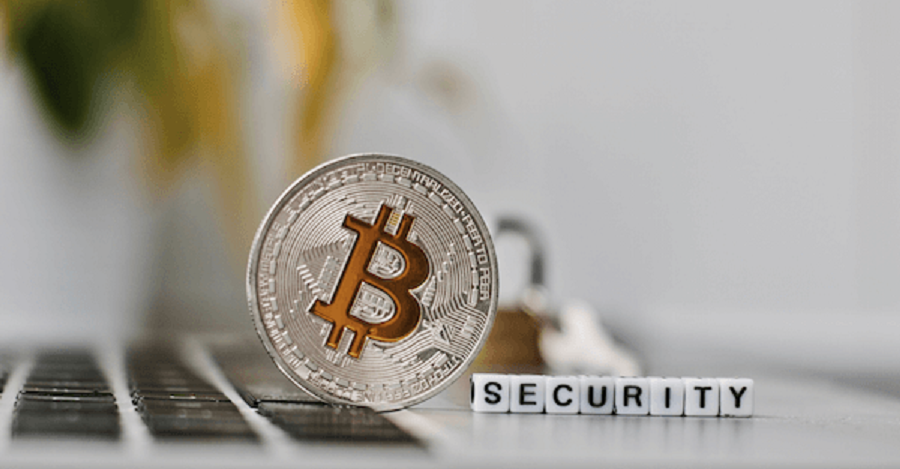4 Habits of Cyber-Smart Businesses

In 2020, there is no denying that companies around the world are more conscious than ever about the destructive potential of cyber-attacks.
From hacking to spamming, phishing to DDoS attacks, these are some of the most detrimental problems that organizations face today. Unfortunately, if a firm becomes a victim of cyber-attacks, it can quickly result in severe financial losses.
Luckily, there are several steps that you can take to help reduce the risk of it happening to your firm. From cybersecurity training to risk assessments, backing-up data to personal device policies, read on to learn the four habits of cyber-smart businesses.
Habits of Cyber-Smart Businesses
1. Provide employees with cyber-security training
One of the most effective things that cyber-smart businesses do is to provide employees with cybersecurity training.
After all, if your employees don’t know how to identify a security threat, then they aren’t going to be able to circumvent it, report it, or eliminate it.
Plus, employees are the most frequent entry points for phishers, so they must know what to be on the lookout for and how to handle potential threats.
Think about it this way: if you provide employees with the best cybersecurity training in Abu Dhabi (or wherever your company is located), then you are seriously strengthening the most vulnerable link in your chain.
Your cybersecurity training should be mandatory for all employees and should be regularly updated to ensure it is current. Moreover, your workers should repeat the training annually to guarantee that they have cybersecurity best practices at the forefront of their minds.
This will also help to make cybersecurity a core element of your firm’s culture.
2. Frequently conduct risk assessments
When it comes to creating a cybersecurity policy, no matter what industry you are in, it is essential that you go above and beyond regulatory compliance.
This is because every enterprise has its own distinct risks, and there is no way for standard regulations to protect your most sensitive data completely. This is where risk assessments come in, as these are crucial for ensuring you have the most robust cybersecurity policy for your business.
Regular risk assessments assist you in prioritizing your cybersecurity strategies and ensure your policy covers the whole company. What’s more, by administering periodic risk assessments, you will bypass many potential costly and stressful problems (e.g. potential breaches and leaks, fines for failing to comply with security regulations).
Whether this is your first time implementing a cybersecurity policy or you are expanding an existing one, risk assessments are the best way to pinpoint your weak points in order to make the required updates and modifications. But, it can’t be a one-time event, as you must always be on the lookout for new hacking techniques.
3. Back up important data and monitor it
No matter the size of your business, it is crucial that you are backing up all of your important data regularly. By having this process in place, you are taking an essential step in securing your company’s network. In fact, many experts consider regular backups as being the most important step a company can take to avert a network disaster.
This is because backups ensure you will still be able to keep your business running in case of data loss, a hack attack, or a natural disaster. There is a high likelihood that much of your business is supported by computer networks, which means that a loss of your network data would have a devastating financial effect on your company. Therefore, you want to think of regular backups as an insurance policy.
Unfortunately, due to their lack of security, many small businesses have fallen victim to ransomware attackers. When this happens, your entire network becomes encrypted, and you have to pay a ransom to hackers to regain access to your own network.
However, if you have your system backed up, you can evade having to pay the ransom, and instead quickly restore your data before the ransomware attack.
4. Formulate a personal device policy
Personal devices are among the most vulnerable tech items as these are easily exploited and can rapidly be compromised by hackers.
Therefore, if you have employees who use their personal devices for work-related reasons (phone, tablet, or laptop) or while on your firm’s network (generally referred to as bring your own device or BYOD), you must formulate a personal device policy.
This must be a written policy that employees sign after they have received training on how to comply with the policy.
Your policy must include what is to be done if an employee’s device is lost or stolen, which generally means you must wipe out the phone and any business-related information on the device.
Additionally, the procedure for reporting lost or stolen devices should be covered in the written policy. Furthermore, it should be a blanket rule that workers utilizing their devices for business should not connect to public WiFi networks as these are unsecured networks where any device can be compromised.
Do you consider your business a cyber-smart? Why or why not?
Let us know your thoughts about Cyber-Smart Businesses in the comments below!





